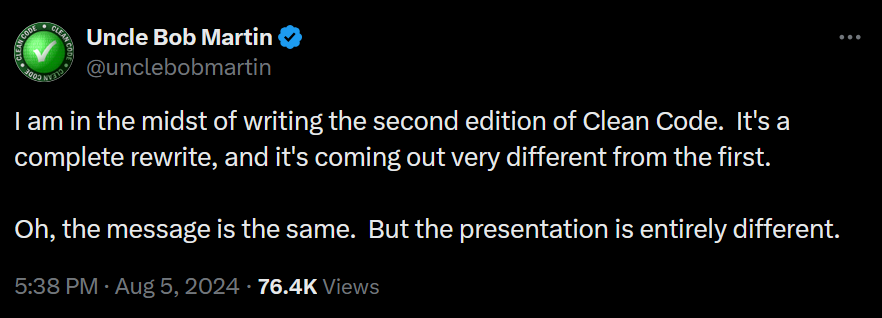this post was submitted on 10 Aug 2024
575 points (97.2% liked)
Programmer Humor
23527 readers
2147 users here now
Welcome to Programmer Humor!
This is a place where you can post jokes, memes, humor, etc. related to programming!
For sharing awful code theres also Programming Horror.
Rules
- Keep content in english
- No advertisements
- Posts must be related to programming or programmer topics
founded 2 years ago
MODERATORS
you are viewing a single comment's thread
view the rest of the comments
view the rest of the comments

Which of these do you prefer?
A?
Or B?
Uncle Bob's Clean Code suggests
Option AI almost pulled my hair out when I read that section. One is super obvious without any prior experience with the code. The other is an obscure abomination only he can understand. He’s obviously super proud of his abomination and thinks it’s a prime example of “clean code”.
It's also a good example of how being too dogmatic about function length can hide important details.
Why in the holy mother of rust is A the better option?
His idea is that it’s faster to read that short string once you learn how to read it. But then you need to learn how to read it.
In my experience, every time I thought of something clever like this, I’ll almost always regret it a month later when I revisit the code.
Ask "Clean" Coders I guess lmao. Beats me.
I've started to prefer option A to be honest.
In C# I'm using Verify - So I prefer to just use
Verify(state);and compare the entire state against a json saved state, instead of manually verifying every individual property